QuestionHello,
I have recently a 6 year old TB cross gelding, about 8 months ago. Before I bought him he had been moved from owner to owner, and I could not find out much about his past. I know that the owner I bought him from had only had him 3 months, and quite frankly she couldn't handle him so nothing had been done with him. He just stayed in round pen 24/7 with a mare companion. He was a head tosser then (when begin ridden), nervous, and very hard to handle. It is obvious he has had bad training, but I fell in love with him. He had very promising movement, and a sweet personality so I bought him hoping to train him and have a nice dressage horse.
We have come a long way and he is coming along very very nicely. He is now in a stall at night, and outside about 8 hours, with a group of 4 other geldings. The one problem that we can not seem to get past is the head tossing. When I say tossing I mean straight up and down, close enough for me to fear being hit in the face. First of all I think he may have Saddlebred in him because he likes to hold his head high anyways. But, he doesn't toss his head when hes running around playing, doesn't toss his head when he's being lounged (in his tack). He only tosses when I ride, and I'm sure its to avoid contact. He also tries to pull the reins out of my hands, and can be very heavy in the hand. I've had his teeth checked, and they are fine. His back has been checked too, which is also fine. All his tack has been checked and fits him comfortable. He will begin to toss when he doesn't like what I'm asking of him ( to bend, to slow down his rythym, to straighten his hind end, to leg yeild, ect. ) I have been only riding him in a snaffle so it couldnt be the bit. He does it in the canter also, because he likes to rush off, I try to keep it nice and slow so he tosses very angrily. I know thats when I should kick him to tell him to behave but i'm afraid he will start rearing, because it feels like that is what he can potentially do (he has never).
Last week I began riding him in a jointed Kinmberwick on the advice of a trainer at my barn. The pulling has stopped and he's very light in the hand. Hes AMAZING actually, goes around calmly, forward and collected. Now its only in the canter, and once he tosses his head up once, it is worse than before, and I get nervous. Once I canter him once, he anticpates canter again, so tries to rush off. Since I have more control in the Kimberwick, I can easily stop him from rushing off, and thats when he will throw his head straight up and get frustrated. The tossing is much less than before, but worse. I don't know what to do... should I try draw reins? This is a really amazing horse, with loads of potential, I just don't want to fight with him, or be nervous on him anymore. Any advice is greatly appreciated!
AnswerHi Laura!
Before I recommend anything training related, I suggest you have him cleared by your vet for the head shaking. I read you had his teeth and back checked but, you did not specifically say by a vet or if it was a vet, that you cleared him of the head shaking syndrome.
This is a syndrome that the main symptom is head shaking/flipping. It is seen in all kinds of breeds and I have seen it in 3 TB's and TB crosses myself.
So, before you try any other bits or more severe tack, have the vet out, tell him/her very specifically when it happens and have him either diagnosed or cleared of having this syndrome. The more detailed your description the better....does he do it only in strong sunlight outside? Does he do it only in the Spring, Summer and early Fall? Does he do it right away after coming inside and then stop after awhile? Watch him, take notes and present this during the exam. It will make it easier for the vet.
Until your boy is cleared, anything you do will not make it worse but, you really won't stop it either. So why fight a mystery? Also, it could escalate in certain situations and injure you...and again, why go there?
Call the vet. Only he/she can put you on the right track right now.
Good luck and remember to always wear an ASTM/SEI approved helmet!
Solange

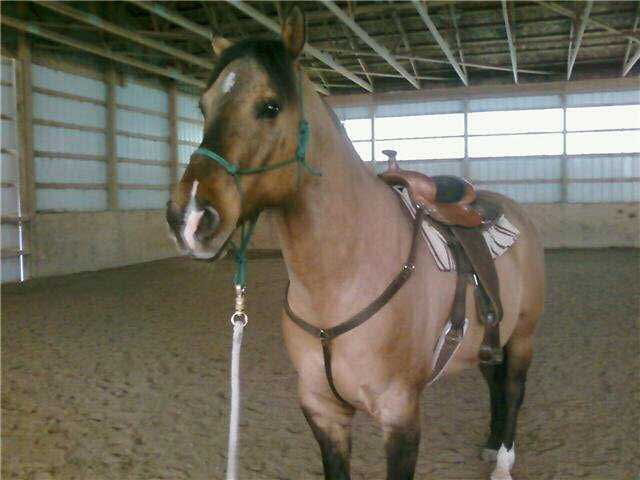 Scared Horse
Question
My horse
I have been working consistent
Scared Horse
Question
My horse
I have been working consistent
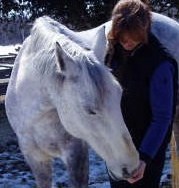 Calming m TB
QuestionI adopted a 16yr old TB gelding from our local
Calming m TB
QuestionI adopted a 16yr old TB gelding from our local
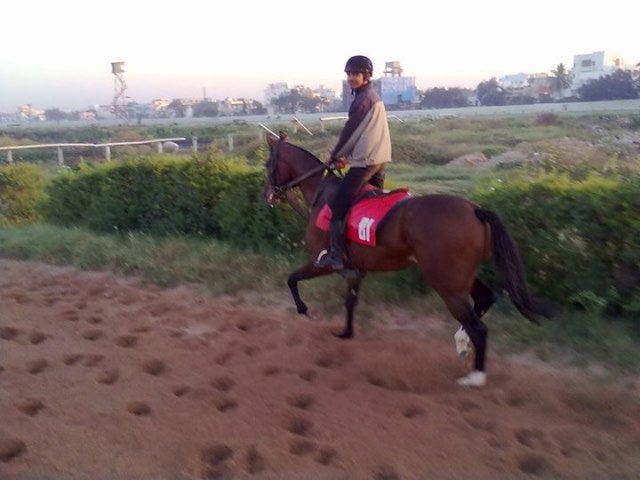 hind quarters engaged while trotting
Question
hind quarters engaged
hello maam, woul
hind quarters engaged while trotting
Question
hind quarters engaged
hello maam, woul
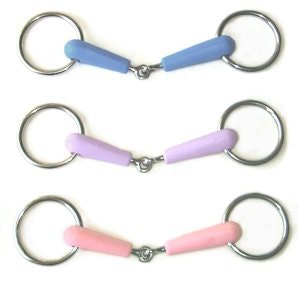 plastic bits - light in horse mouth
Question
apple mouth bits
hello maam, are plasti
plastic bits - light in horse mouth
Question
apple mouth bits
hello maam, are plasti
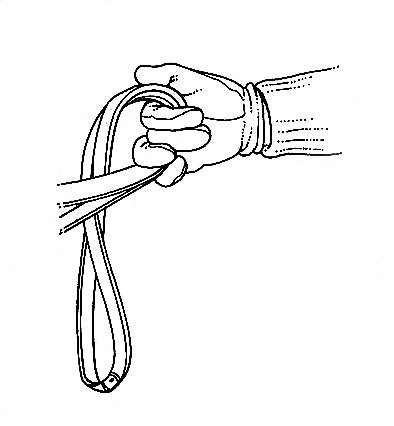 holding reins gently
Question
holding reins gently
hello, why shouldnt i hol
holding reins gently
Question
holding reins gently
hello, why shouldnt i hol